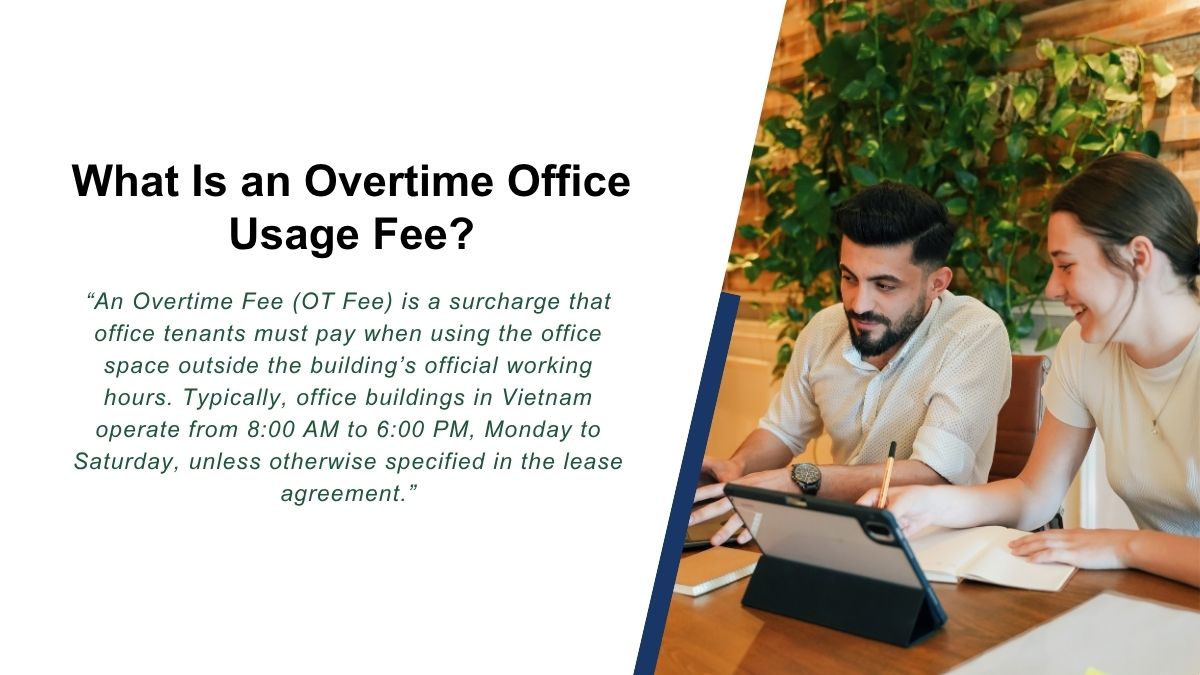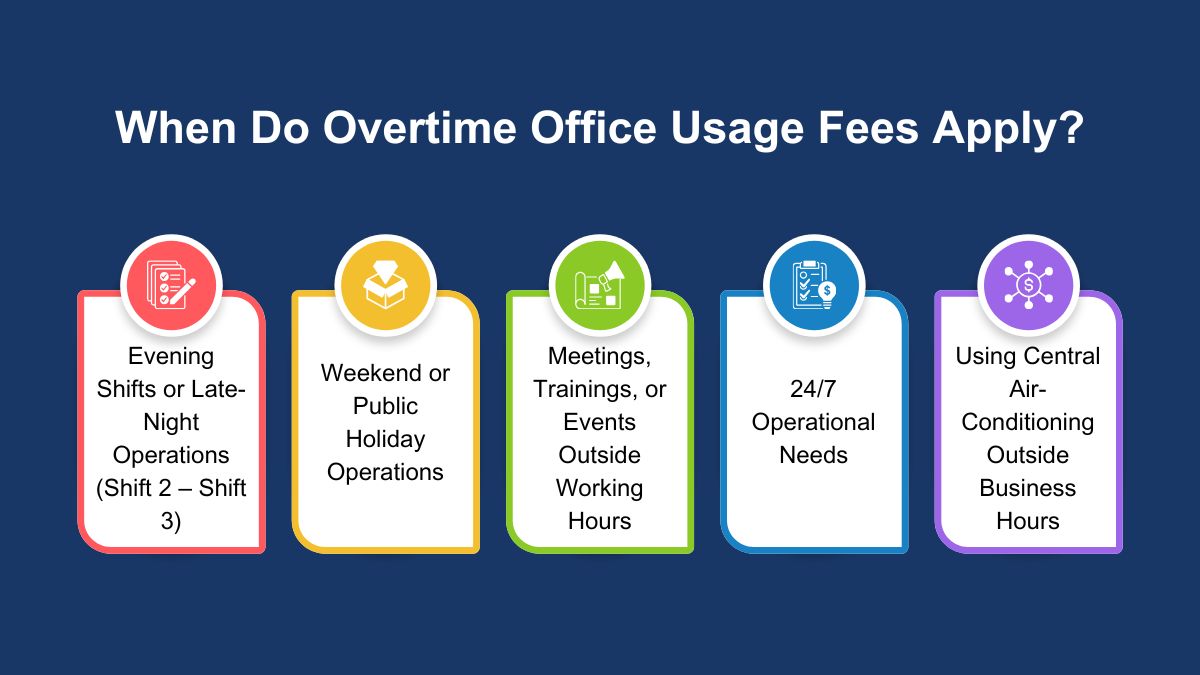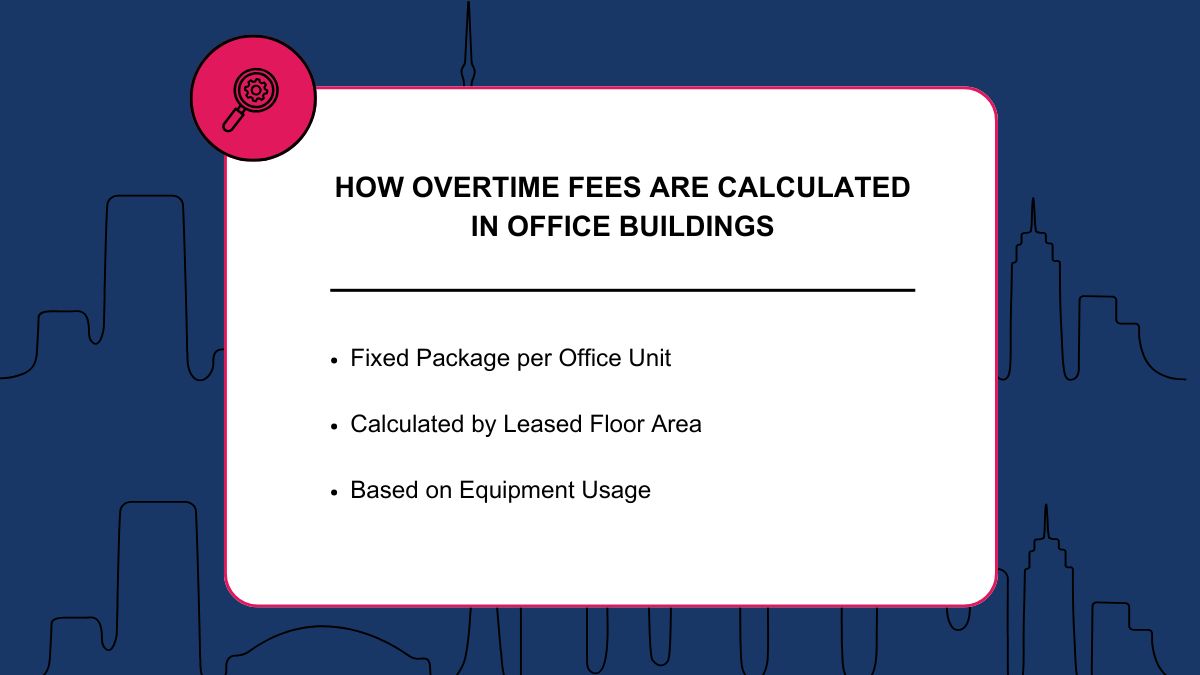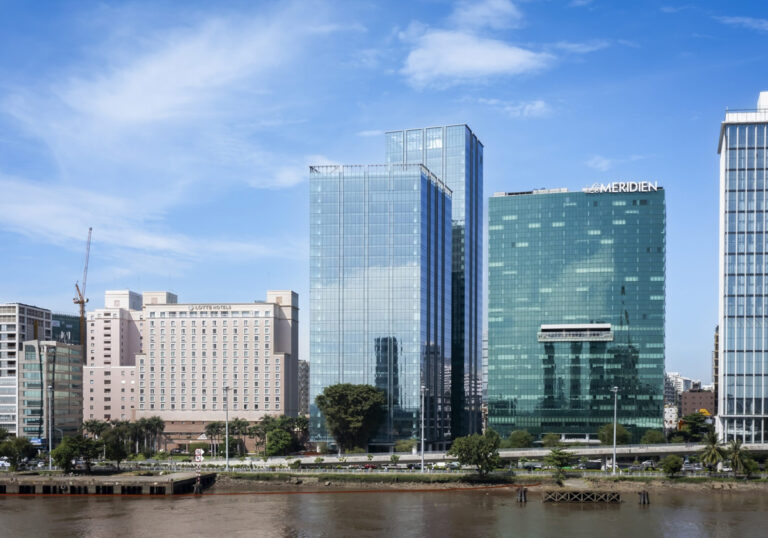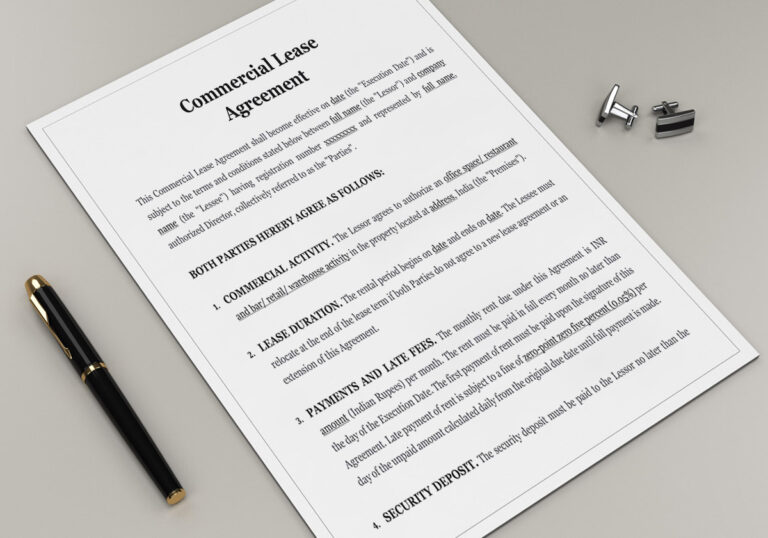What is Overtime Fee? How It’s Calculated and Negotiated

Overtime office usage fees refer to the additional costs incurred when a business operates beyond the standard business hours set by the building. Depending on the office grade (A, B, or C) and the type of technical systems used (such as central air-conditioning or VRV systems), these overtime charges can vary significantly and have a notable impact on a company’s total office rental budget.
Table of Contents
- 1. What Is an Overtime Office Usage Fee?
- 2. When Do Overtime Office Usage Fees Apply?
- 3. How Overtime Fees Are Calculated in Office Buildings
- 4. Reference Overtime Fee Rates – Grade A, B, and C Office Buildings
- 5. Specific Characteristics & Considerations by Building Grade
- 6. Tips for Negotiating Overtime Fees
- 7. Frequently Asked Questions (FAQs) about Overtime Fees
1. What Is an Overtime Office Usage Fee?
An Overtime Fee (OT Fee) is a surcharge that office tenants must pay when using the office space outside the building’s official working hours. Typically, office buildings in Vietnam operate from 8:00 AM to 6:00 PM, Monday to Saturday, unless otherwise specified in the lease agreement.
This fee is primarily intended to cover the additional operational costs, including electricity, air conditioning, lighting, security, and night-shift personnel required during after-hours usage.
At Grade A and B office buildings, standard free working hours are typically from 8:00 AM to 6:00 PM (Monday to Friday) and 8:00 AM to 12:00 PM (Saturday).
If a company needs to operate during evenings, weekends, or public holidays, the extra hours will be considered overtime and subject to additional charges.
In contrast, some Grade C buildings or those equipped with independent VRV/VRF air-conditioning systems may offer free after-hours access. However, this is often limited in terms of equipment usage or designated areas.
2. When Do Overtime Office Usage Fees Apply?
Overtime fees are incurred when a business uses the office outside the standard working hours defined by the building’s management. Below are the most common scenarios where tenants are typically charged overtime fees:
2.1 Evening Shifts or Late-Night Operations (Shift 2 – Shift 3)
Applies to companies operating in shifts—such as data centers, global customer service hubs, tech startups, logistics, or production teams. When working past 6:00 PM, systems like air conditioning, lighting, and elevators must be activated additionally, resulting in overtime charges.
2.2 Weekend or Public Holiday Operations
Most office buildings only offer free access on Saturday mornings. If tenants need to use the office throughout Saturday, on Sundays, or public holidays, specific overtime rates will apply based on time slots.
2.3 Meetings, Trainings, or Events Outside Working Hours
When companies hold internal meetings, staff training, or client receptions outside of regular hours, charges for central HVAC, lighting, security, and building services may be added accordingly.
2.4 24/7 Operational Needs
For businesses with flexible or cross-time-zone operations, choosing a 24/7-access office upfront is essential. Otherwise, tenants may incur a fixed monthly overtime fee, which should be carefully reviewed during lease negotiations.
2.5 Using Central Air-Conditioning Outside Business Hours
In buildings with central HVAC systems, air-conditioning is not automatically available after hours. Companies must register in advance and pay overtime fees by the hour or in fixed blocks when extended cooling is required.
Note: Some serviced offices or 24/7 office models may already include these fees in the rent. However, it’s crucial to review the lease and service level agreement (SLA) thoroughly to avoid unexpected costs.
3. How Overtime Fees Are Calculated in Office Buildings
Depending on the building grade, technical systems, and operational policies, overtime office usage fees can be calculated using different methods. Below are the three most common pricing models that businesses should understand when evaluating long-term operating costs:
3.1 Fixed Package per Office Unit
Overtime fees are charged at a fixed hourly rate per office unit, regardless of the actual floor area or equipment used.
- Typical usage: Small offices or Grade B/C buildings with simple infrastructure
- Reference rate: VND 300,000 – 1,000,000/hour/office
- Advantages: Easy to estimate, not calculated by square meter or specific utilities
- Limitations: Tenants must pay for the entire unit, even if only a portion is used
→ Suitable for businesses needing short daily overtime (e.g. 1–2 hours/day)
3.2 Calculated by Leased Floor Area
This method is common in Grade A buildings or those with central HVAC and BMS systems.
- Formula: Overtime Fee (VND) = Leased Area (m²) × OT Rate (VND/m²/hour)
- Typical rate: VND 80,000 – 180,000/m²/hour, depending on building grade and location
- Advantages: Transparent and scalable—ideal for large office tenants
- Limitations: Can be costly for frequent overtime use or large floorplates
→ Note: Many buildings enforce minimum charge durations (e.g. 2 hours per request)
3.3 Based on Equipment Usage
Some buildings calculate overtime based on individual equipment usage, especially in offices with zoned VRV/VRF air-conditioning systems or separate metering.
- HVAC: Charged per hour per A/C unit or by usage block
- Elevators: Fees apply if lifts are turned off after hours and need manual reactivation
- Electricity & lighting: Charged based on actual kWh consumption or a fixed standby power package
→ Typically used in smart buildings with zone-level equipment control per floor or unit
Important Note: Some buildings combine multiple pricing methods – e.g., a fixed fee for HVAC plus per-square-meter charges for total usage. Always review the lease agreement and service level appendices (SLA) carefully to avoid unexpected overtime charges.
4. Reference Overtime Fee Rates – Grade A, B, and C Office Buildings
Overtime usage fees in leased office buildings vary depending on factors such as air-conditioning systems, free working hours, management standards, and building grade.
The following is a benchmark fee range compiled by Maison Office, based on data from over 500 actual lease transactions:
| Building Grade | Business Hours | Overtime Fee (VND/m²/hour) | Notable Policies |
| Grade A | 8:00 – 18:00, Monday to Friday
8:00 – 12:00, Saturday |
120,000 – 180,000 | Professional management, central air-conditioning system, equipped with BMS |
| Grade B | 8:00 – 18:00, Monday to Friday
8:00 – 12:00, Saturday |
80,000 – 120,000 | More flexible, negotiable minimum block charges |
| Grade C | 8:00 – 18:00, Monday to Friday
8:00 – 12:00, Saturday |
50,000 – 80,000 | Some buildings offer free OT or calculate based on equipment usage |
Key Factors Influencing Overtime Charges
- Air-conditioning system: Central HVAC systems often charge based on fixed time blocks, while VRV/VRF systems allow for more flexible usage and control.
- Duration of use: Overtime fees may be calculated per minimum time blocks (usually 1–2 hours) or as a fixed monthly package depending on the building’s policy.
- Building scale & occupancy: Larger buildings with multiple tenants tend to offer clearer, more transparent overtime pricing policies.
- Industry-specific support: Some buildings prioritize tech firms and startups by offering more flexible 24/7 access or customized overtime packages.
Real-World Examples from Maison Office
| Company | Building | Grade | Leased Area | Overtime Fee |
| Digiworld Vietnam | E.Town Central | B | 1,360m² | 4,200,000 VND/floor/hour |
| Cloudstorm VN | Cobi Tower 1 | A | 411m² | Free overtime |
| Miniso Vietnam | L’mak The Signature | B | 455m² | 494,000 VND/hour |
Note: The above rates are for reference only. They may vary depending on the time, leased area, negotiation capability, and assistance from office leasing consultants.
5. Specific Characteristics & Considerations by Building Grade
Each office building grade (A, B, C) operates with distinct management systems and after-hours charging policies. Understanding these differences enables businesses to select office spaces that align with their flexible working needs and helps avoid unnecessary operational costs.
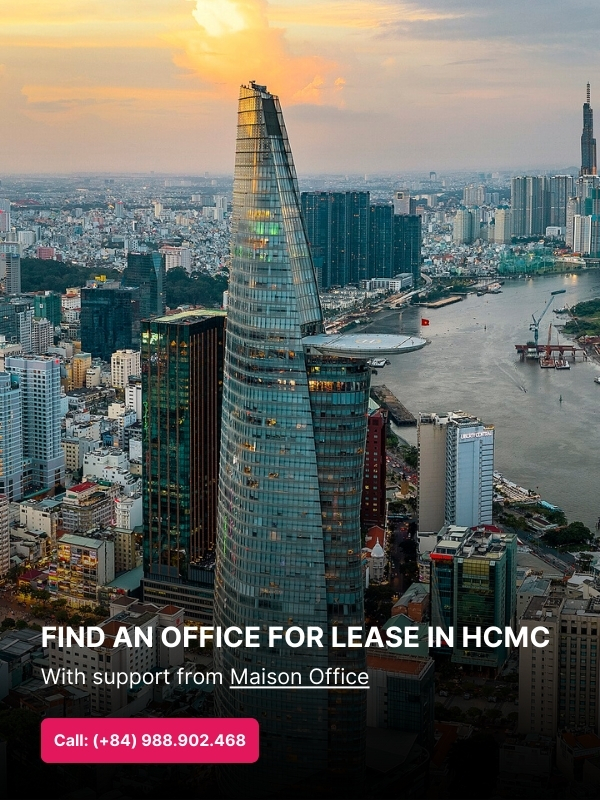 |
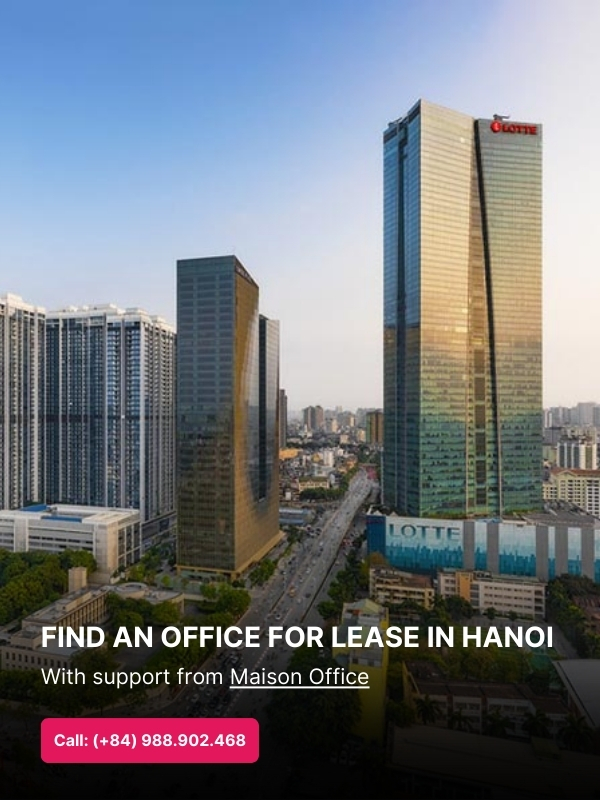 |
5.1 Grade A Office Buildings
Key Features:
- Professionally managed by top firms (e.g., Savills, CBRE, JLL)
- Equipped with central HVAC systems, BMS, and high-speed elevators
- 24/7 security and international-standard operations
After-Hours Notes:
- Higher overtime fees due to activation of full technical systems
- Charges typically calculated by leased area (VND/m²/hour), often requiring advance registration
- Some buildings apply a minimum 2-hour block, regardless of actual usage
→ Recommendation: Suitable for businesses seeking a prestigious brand image but do not frequently require extended working hours.
5.2 Grade B Office Buildings
Key Features:
- Well-maintained facilities, often using VRV air conditioning
- Locally or internally managed, allowing more flexible lease negotiations
- Reasonable rental and overtime rates
After-Hours Notes:
- Overtime fees may be calculated per office unit (flat rate) or by area
- Many buildings offer flexibility for startups or tech firms
- Some allow monthly overtime packages with fixed terms
→ Recommendation: Ideal for mid-sized businesses with shift-based or flexible working hours.
5.3 Grade C Office Buildings
Key Features:
- Basic technical infrastructure, non-centralized systems
- Directly managed, less bureaucratic
- Typically equipped with standalone AC units instead of central HVAC
After-Hours Notes:
- Many buildings do not charge overtime if using independent AC systems
- However, it’s essential to review policies on elevator use, security, and lighting after hours
- Some buildings do not support weekend or holiday operations
→ Recommendation: Best for small to medium-sized companies aiming for strict cost control.
Expert Tip from Maison Office: When evaluating office spaces, don’t compare only the rental rate – always request a detailed quote on overtime fees and a sample Service Level Agreement (SLA). Negotiating overtime conditions should be part of the office shortlisting phase, not an afterthought post-contract.
6. Tips for Negotiating Overtime Fees
Overtime charges can become a significant hidden cost, especially for businesses requiring flexible work schedules. Below are effective negotiation strategies to help reduce these costs when leasing office space:
Negotiate during the initial lease discussion
- Request the full overtime pricing schedule and Service Level Agreement (SLA) before signing any lease.
- Avoid scenarios where overtime fees are not clearly outlined in the main lease but still enforced after move-in.
Propose fixed free overtime allowances
- Suggest packages such as 2 hours per day or 15–20 hours per month at no additional charge.
- Ideal for businesses with occasional late hours but not on fixed daily blocks.
Benchmark and compare multiple buildings
- Use quotes from similar-grade buildings as leverage in negotiations.
- Some buildings (e.g., Cobi Tower, Lapen Asset, G8 Tower) offer flexible or waived overtime policies.
Leverage a professional advisor like Maison Office
- Maison Office assists clients in negotiating complex lease terms.
- We provide transparent price comparisons across options.
- Our guidance helps avoid hidden post-contract costs.
Negotiate an all-inclusive rental package
- Some businesses can negotiate a fixed rental rate that includes overtime usage.
- This approach suits companies operating at night or on a 24/7 schedule.
Note: Businesses leasing over 300 m² typically have stronger leverage to negotiate reduced or waived overtime fees compared to those leasing smaller areas.
7. Frequently Asked Questions (FAQs) about Overtime Fees
7.1 Is overtime charged for working on weekends?
Yes. Most office buildings only allow free usage on Saturday mornings. If your business operates full-day Saturdays, Sundays, or during public holidays, overtime fees will apply depending on the duration and required technical systems.
7.2 Should we choose a 24/7 office instead of paying overtime fees?
Yes – if your team frequently works beyond regular business hours. 24/7 or all-inclusive offices typically cover overtime operating costs, helping you save on expenses and gain full flexibility in working hours.
7.3 Are overtime fees invoiced?
Yes. Overtime charges are legitimate operational fees and can be invoiced monthly with VAT, subject to each building’s management or operating company policy.
7.4 Can we negotiate for free overtime hours in the lease agreement?
Absolutely. You can negotiate packages such as 10–20 free overtime hours per month, or waived fees during the first 3–6 months. This should be negotiated before signing the final lease.
7.5 If we don’t use air conditioning after hours, will we still be charged?
It depends on the building. Properties with VRV systems or independent A/C per floor often do not charge overtime if the systems are not activated. However, it’s essential to confirm this in the Service Level Agreement (SLA).

Editor and content team manager at Maison Office.
With over 5 years of experience in consulting and extensive content editing in the real estate services and interior design field. Sharing valuable information with customers, partners, and attracting millions of views.

